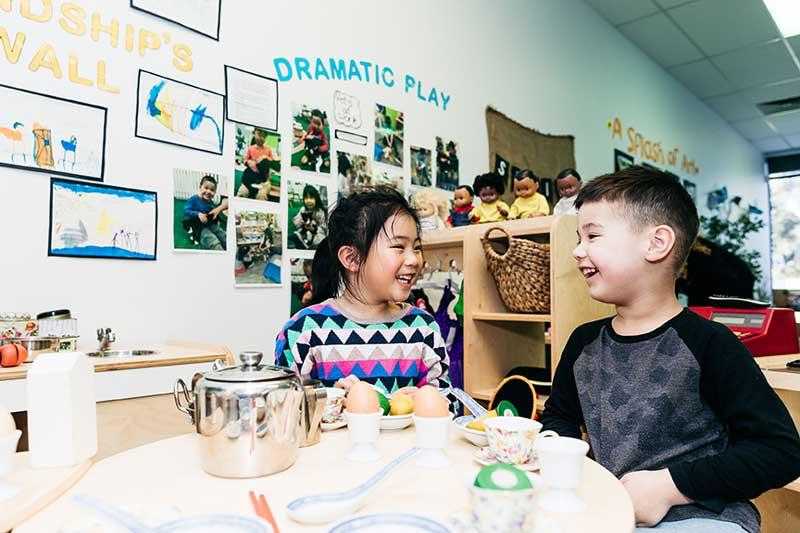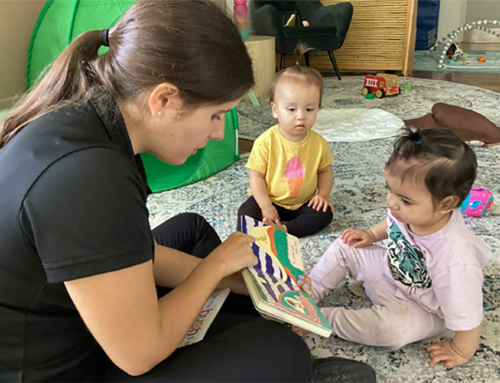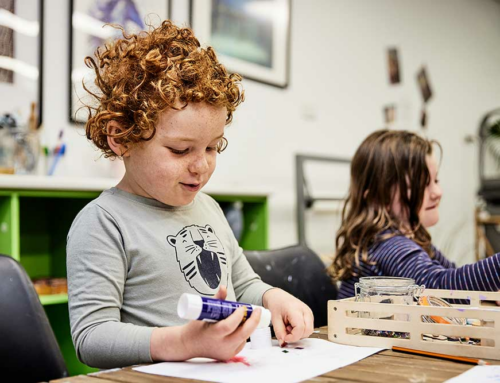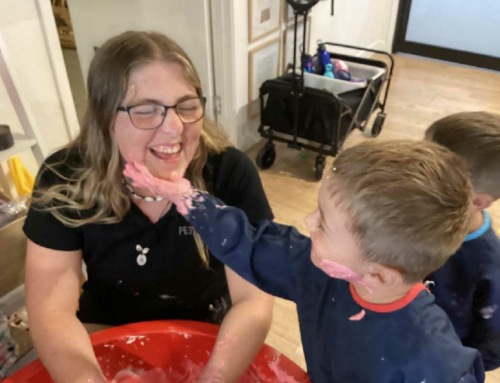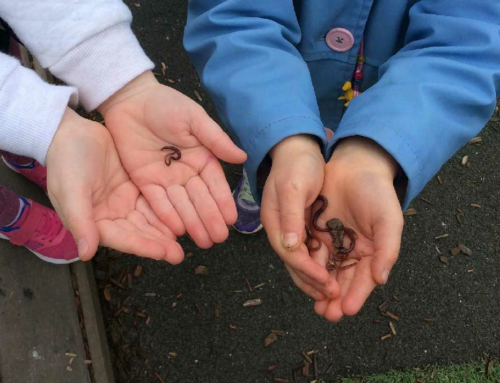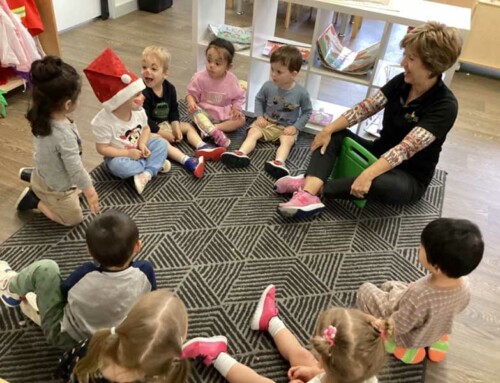Have you ever wondered how and why we support bilingual children in early childhood education and care? Do you know what to do if your child is having a hard time with this process? In this article, we discuss the significance of supporting bilingual children in early learning.
Bilingualism or multilingualism is becoming commonplace in many countries across the world, and this trend is not expected to slow down. Victoria Harrison from the Victorian Curriculum Assessment Authority estimates that one in three children in early childhood education and care are bilingual.
As language conveys culture, traditions and identity at Petit Early Learning Journey, we feel it is important to understand the best ways to support bilingual children or multilingual young learners in their learning journey as it also supports inclusion.
To help us unpack bilingualism we enlisted the help of Petit ELJ Clifton Hill and Petit ELJ Richmond. Earlier this year we also spoke to our Educational Leaders on the importance of “Mother Tongue”. We revisit their thoughts and explore:
- How do you support bilingual children and their families in early childhood?
- Why is it important to support education based on the first language or mother tongue?
- What strategies do you suggest to assist children where English is a second language?
- What should families do if their child is having a hard time adjusting to speaking two languages?

What is bilingualism?
Bilingualism or bilingual is a term used to describe someone who can speak more than one language. Other related terms include multilingual or multilingualism and mother tongue.
“For me, mother language is the language you were exposed to first,” says Angeles, Petit ELJ’s Regional Operations & Education Manager. “The language your ‘mother’ (whomever that was) sang and spoke to you and the one you connected with the most in the first five years of your life.
“It is the language you hold dearly in your heart because it represents those connection moments from when you were young.”
In Australia, bilingual children are exposed to the same early childhood programs as monolinguals and it’s important that we support bilingual learners in their learning journey across all aspects of education and care.
Supporting bilingual children and families doesn’t have to be complicated.
“I see multilingualism as something to be recognised and celebrated as part of life,” says Tanya, Petit ELJ’s Education & Practice Advisor. “It supports children’s growing understanding of themselves and the world.”
“Being Australian, ‘mother language’ also reminds me to consider and honour the many Aboriginal and Torres Strait Islander languages across our different lands. It is important to keep these languages ‘living’.”

How do you support bilingual children and their families in early childhood?
“Richmond is very culturally diverse, so we are used to helping families who have English as a second language,” says Steph, Centre Director at Petit ELJ Richmond. “One thing is to understand that they are bilingual, but the other thing to keep in mind is that their cultural values have to be considered.”
“We take time to support the families on their first visit. This often requires us to help fill out enrolment forms, sometimes with the help of Educators that speak the languages, at other times this may mean doing it with them and showing them things to help.”
At Petit ELJ, we encourage our Educators to understand the connections of language, its use, culture and identity.
“We can support the children in our care who speak multiple languages by learning and including some of their first language,” says Jennifer, Educational Leader at Petit ELJ Clifton Hill. “We can do this through the books we read, and the songs we sing.”
“It is also important to talk with the children and not at them and to include their families and siblings in discussions.”
“Visual aids can be useful for supporting bilingual children,” says Cynthia, Early Childhood Teacher at Petit ELJ Clifton Hill. “They help children to familiarise themselves in the environment without feeling frustrated for not being able to express themselves well.”
“Engaging children in music and stories in both languages builds a sense of belonging.”

Why is it important to support education based on the first language?
When we support education based on a child’s mother tongue it allows us to learn more about people, culture and their interests. It promotes inclusion, linguistic diversity and cultural, social, emotional, intercultural and learning.
“Not only is it important from an academic perspective, children need to have ties to their roots, it is important for families to keep their language alive and children are often provided with more opportunities as adults,” says Steph.
“Encouraging education based on a child’s mother tongue ensures all children’s learning needs and strengths are catered for,” says Cynthia. “It promotes a sense of belonging helping them to connect and feel proud of their cultural backgrounds.”
“Supporting children’s mother tongue ensures children have equal opportunities to be successful, feel included and it supports them in developing multilingual skills,” says Jennifer.
“Multilingualism is a fantastic skill to have,” says Angeles. “The research available has shown that children who speak more than one language have more neural connections and cognitive flexibility allowing them to switch between tasks as easily as they do between languages.”
“Research has also shown that bilingual children better understand social conventions and others’ perspectives. They also seem to understand better things like tones of voice and intonation.”
Strategies to assist children where English is a second language at home
Collaborative relationships are really important for supporting bilingual children. At Petit ELJ, we promote family partnerships and encourage families to share their culture including words from their mother tongue which are familiar to their children.
“Our Educators encourage families to continue to use their mother tongue at home, so children grow up bilingual/multilingual,” says Angeles. “Where possible, we support Educators using children’s first language as a connection and safety tool as well as a preservation tool.”
“We want children to feel safe and secure, so it is important to consult with families regarding words or resources in their mother tongue that we can use in the room to create a familiar environment for their children,” says Cynthia.
“Through our family partnerships we support and encourage families and their children to continue to use their first language at home,” says Jennifer. “We provide resources and include their language and culture in our environments and learning experiences.”
“At Petit ELJ Richmond, having Educators who speak different languages is very helpful and we utilise this where we can. We tend to try and use cues to help children adapt, such as pictures and visual signs. We often ask families to provide us with commonly used words or phrases for eating or toileting to aid us.”
“Many of our families here are Vietnamese speakers, one of our Educators, Trang, will be providing their Summative Assessments in Vietnamese this year.”

What should families do if their child is having a hard time adjusting to speaking two languages?
Families should reach out and speak to their Educators and Centre Director if they are concerned that their child is having difficulty adjusting to learning English as a second language. We’re here to listen and provide support. We celebrate the unique and diverse backgrounds of our families.
“We encourage families to keep using their first language at home,” says Jennifer. “Families and children can listen to music, radio stations or watch television in their mother tongue. It’s important to be patient and to consider other solutions such as bilingual programs or connecting with other bilingual families in their community.”
“All children learn differently, so it’s important that Educators and families follow their child’s pace and be patient. Encouraging families to participate in early childhood learning experiences such as Grandparents Day can promote children’s first language and culture and give them the confidence to explore new experiences.”
“We partner with many allied health services that are bilingual,” says Steph. “They also provide services to our families and we help to facilitate their support. Often it is about how parents can integrate English in the home, and how we can integrate their home language in our service.”

Share your unique family diversity with Petit Early Learning Journey
At Petit ELJ we recognise and celebrate multilingualism as it supports and promotes inclusion and helps children develop their sense of identity. We welcome and encourage families to partner with us, sharing their cultural diversity in their child’s learning journey.
We empower parents to be the decision-makers in our quest to provide the best care, support and learning for their children. Our open-door policy and community involvement promote children’s and families’ sense of belonging. Learn more about how we can support you and your child.
